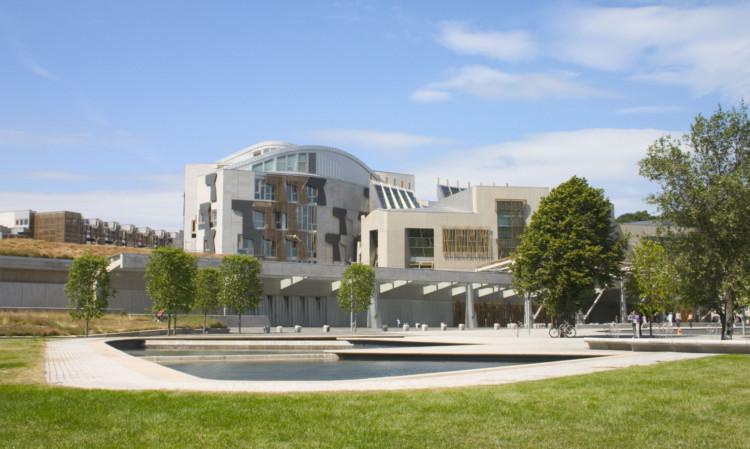
Local taxes could raise hundreds of millions of pounds in funding for cash-strapped public services, according to a new report.
Think tank IPPR Scotland said it would also help ministers achieve key priorities such as tackling climate change and making work fairer.
It urged MSPs to consider introducing “new and innovative forms of taxation” and said the Parliament’s powers over local taxation offered “perhaps the best opportunity” to achieve this.
There appear to be “few” legislative barriers to bringing in new local taxes, provided money raised goes towards local authority expenditure, IPPR Scotland said.
While a new report from the think tank proposed a local inheritance tax, carbon tax and fair work supplement as some examples, it stressed the aim of the paper was to “outline what might be possible and pose questions for discussion and illustrative ideas for debate”.
The 1998 Scotland Act “devolved very wide powers when it comes to local taxation in Scotland to the Scottish Parliament”, it noted.
IPPR Scotland director Russell Gunson said: “The potential for our local tax powers has in many ways been overlooked in recent years but in Scotland we can do more – and we should.”
A local inheritance tax could raise up to £200 million of additional money for Scotland if it had a 10% marginal tax rate above a threshold of £36,000, IPPR Scotland said.
This could potentially rise to £300 million a year if there was a 20% marginal rate for estates worth more than this that do not currently pay UK inheritance tax.
The report went on to suggest a local payroll tax – or low pay levy – could be charged on employers for those workers earning up to £8,632 a year, who a re currently not subject to National Insurance.
This could bring in up to £600 million a year in revenues, if it was set at a “marginal rate” of 3.8%, IPPR Scotland said.
The think tank also suggested a carbon tax could be brought in, similar to a scheme that already exists in Canada, with the money raised going to councils to help fund carbon reducing measures.
Such local taxes could “offer opportunities to strengthen Scotland’s tax base, deliver behavioural change in line with key Scottish government priorities and provide crucial additional public funding”, the report said.
Holyrood has already used powers of income tax rates and bands in a bid to make the tax system in Scotland more progressive.
But IPPR Scotland a focus on these more recently devolved powers “may have crowded out” consideration of the potential for local taxes to be implemented.
The report said: “Using local tax powers could allow the Scottish Government to introduce new taxes that broaden the Scottish tax base, which is currently dependent on taxes on earnings and on property taxation.
“This could better future-proof Scotland’s public finances against disruption in the economy, climate change and demographic change, not to mention better protected from cross-border flows in taxpayers between Scotland, the rest of the UK and the rest of the world.
“Secondly, the introduction of new forms of taxation, using local taxation powers, could allow greater ability for the Scottish government to use tax powers to drive the behaviour changes Scotland needs to see around some of the key challenges it faces looking ahead.”
Mr Gunson said: “Scotland has led the way in using its powers to create a more progressive income tax system.
“But if we want to go further, using our older powers over local tax could be crucial.
“The Scottish Parliament is beginning to wake up to this, including through proposals for a tourist tax, but so far these ideas are small in scale.”
He added: “New taxes could see us put our money where our mouth is on the huge priorities facing Scotland.
“Our politicians should be far more ambitious on tax, thinking bigger to build a stronger, more progressive tax system that better narrows wealth inequalities, tackles environmental breakdown and delivers a fairer economy.”
Scottish Trades Union Congress general secretary Grahame Smith (Fraser Band/STUC/PA)
The Scottish Trades Union Congress, which helped with the report, said it showed “the enormous potential for revenue raising within the devolution settlement”.
General secretary Grahame Smith said: “The report can help move us on from a sterile debate which has been focused mainly on income tax and on the limitations of the current devolution arrangements.
“Instead we can consider international examples of how revenues can be raised and the how the role of democratically accountable local authorities enhanced.
“Fundamental to tackling poverty and inequality are well resourced public services and decent work.
“The report identifies how new local taxes could provide much needed funding for services whilst incentivising employers to deliver good jobs.”

Enjoy the convenience of having The Sunday Post delivered as a digital ePaper straight to your smartphone, tablet or computer.
Subscribe for only £5.49 a month and enjoy all the benefits of the printed paper as a digital replica.
Subscribe